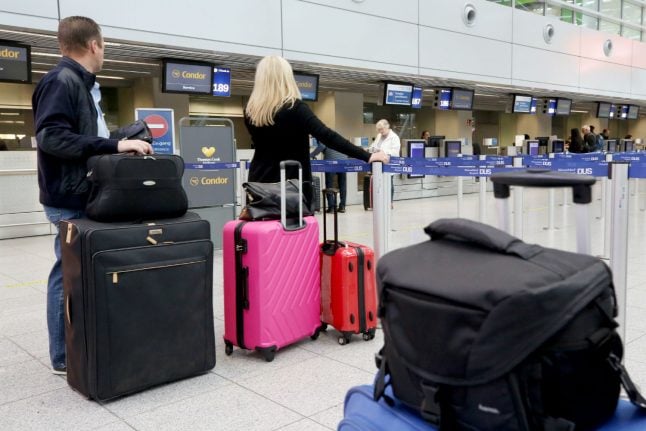EU legislation protects the rights of air passengers, and in many cases means that you're entitled for compensation in the event of delays, strikes, and more. But the majority of travellers aren't aware of their rights, so here are the answers to the questions you might have.
What rights do passengers have in the event of flight cancellations or delays?
This has been regulated uniformly in the EU since 2005. If you get stuck longer than three hours because of a delayed or cancelled flight, you are entitled to vouchers for drinks and food during the waiting period. If necessary, you also have a right to an overnight stay in a hotel.
For a departure flight, passengers are entitled to a flight refund within seven days, and for return flights they are entitled to a rerouted flight back to their destination.
Compensation – what does that mean?
Compensation, however, is not guaranteed 100 percent of the time. Passengers are entitled to financial compensation from the airline if their connection is seriously delayed, overbooked or cancelled at short notice. How much money they receive, however, depends on the length of the trip.
For a flight within Europe of more than 1500 kilometres – say from Hamburg to the Canary Islands – it is €400 per person. For a flight of longer than 1500 kilometres outside of Europe, the compensation can be €600 or more, and for flights less than 1500 the figure stands at €250.
The amount is halved if an emergency pilot takes the passengers to their destination without too much delay.
How do I know if my flight is covered?
EU legislation applies if any one of the following criteria is met: your flight was within the EU (operated by any airline, whether based in the EU or not); your flight went from outside the EU to an EU country, and was operated by an EU airline; your flight went from an EU country to a non-EU country (operated by any airline, whether based in the EU or not).
For the purposes of this legislation, the term 'EU country' also includes Norway, Iceland, and Switzerland, so that a journey between Canada and Iceland, for example, would count as a journey between a non-EU country and an EU country.
If you receive benefits for the same journey under the law of a non-EU country, you are not entitled to claim for benefits under EU law. The following video outlines the rights of passengers under EU law.
Under EU rules, airlines are not liable for an event that “is due to exceptional circumstances that could not have been avoided even if all reasonable measures had been taken”. As examples, the regulation cites strikes, as well as political instability and adverse weather conditions. However, compensation can vary on a flight by flight basis.
When do “exceptional circumstances” apply in the case of strikes?
In cases brought to the German court of justice (BGH), strikes have been deemed an “extraordinary circumstance” twice. One was cancellations due to a strike call by the pilots' association Cockpit, and the other was delays due to general strikes in Greece, followed by temporary airspace closures.
The BGH, on the other hand, obliged the German TUIfly to make payments after so-called “wildcat strikes”. In protest against airline restructuring measures in October 2016, almost 90 percent of employees called in sick. But the BGH ruled that the “spontaneous absence of a significant part of the flight staff” is not an uncontrollable situation.
When can an airline cancel a flight?
A passenger is less likely to receive financial compensation if a flight’s cancellation is deemed “unavoidable” but this applies only in very specific and rare circumstances – for example, if not a single passenger makes it to the aircraft in time due to delays in checks. The BGH judges will only accept safety concerns if there is an indication of a concrete risk. In all other cases, the airline can still cancel the flight – but it must compensate the passengers.
If you think you’re liable for a compensation from your airline, you can file an official EU airline complaint form.



 Please whitelist us to continue reading.
Please whitelist us to continue reading.
Member comments